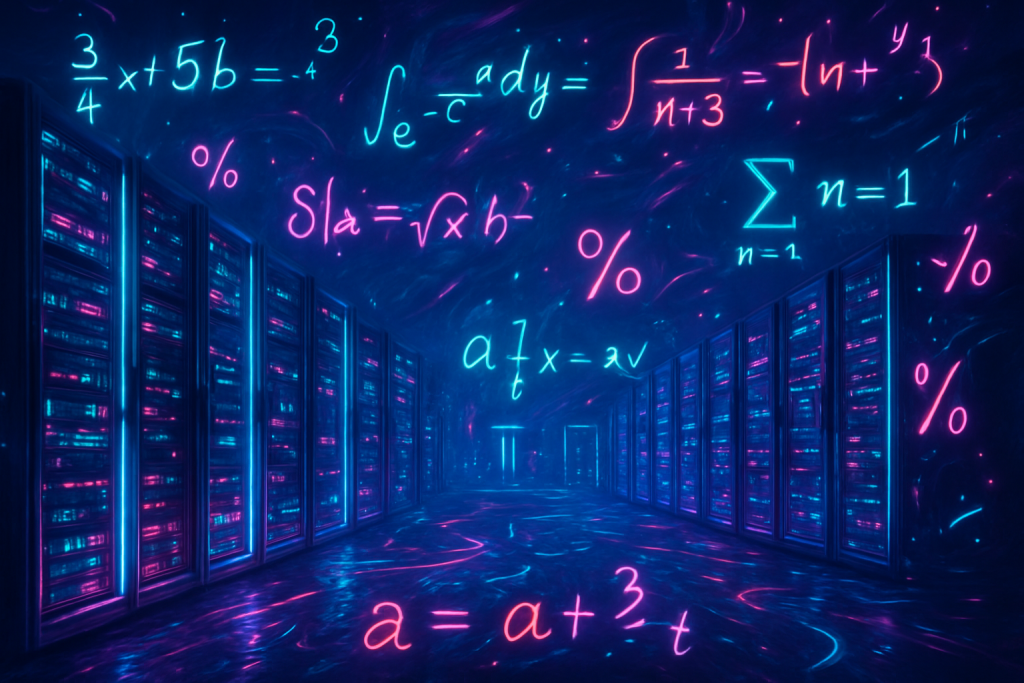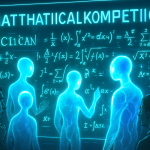Okay, folks, buckle up. Remember that scene in “Good Will Hunting” where Matt Damon’s character casually drops some mind-blowing mathematical insights? Well, reality just got a whole lot more like that movie. Except instead of a troubled genius from Southie, it’s an AI. And instead of a chalkboard in MIT, it’s… well, probably a server farm somewhere in the Pacific Northwest.
The headline? OpenAI just announced that an experimental large language model (LLM) achieved gold medal-level performance at the International Mathematical Olympiad (IMO). Yes, that IMO. The one where the brightest young mathematical minds from around the globe wrestle with problems that would make your calculus teacher weep. This AI solved five out of six of those problems. Without tools. Under the same conditions as the human contestants. Let that sink in.
We’re not talking about an AI acing a multiple-choice test here. The IMO problems are notoriously difficult, requiring not just rote knowledge but genuine, creative problem-solving. This isn’t just about pattern recognition; it’s about understanding abstract concepts, formulating novel approaches, and executing them flawlessly. It’s the AI equivalent of composing a symphony, not just playing a pre-written piece.
But to really understand the magnitude of this, we need to rewind a bit. The IMO isn’t some newfangled TikTok challenge. It’s been around since 1959, a crucible for mathematical talent. Gold medals are rare, reserved for those who demonstrate exceptional ability. For an AI to reach that level is, frankly, astonishing. It’s like Deep Blue beating Kasparov, but instead of brute-force calculation, it’s creative genius at play. Think less “Rain Man” counting cards and more “Sherlock Holmes” deducing the culprit.
So, what exactly did this AI do? Well, OpenAI isn’t releasing the specifics of the problems or the model’s solutions (yet). But we know that the problems involve areas like geometry, number theory, algebra, and combinatorics. These aren’t just equations to be solved; they’re puzzles that demand intuition, insight, and a knack for seeing connections that others miss. To solve five of these problems, the AI had to demonstrate a level of mathematical understanding that was, until now, considered the exclusive domain of human intellect.
The conditions are crucial here. No internet access, no pre-programmed solutions, no access to Wolfram Alpha. Just pure, unadulterated AI brainpower. This wasn’t an AI regurgitating information; it was actively thinking, reasoning, and creating. It’s as if someone gave a computer a blank canvas and it painted the Mona Lisa. (Okay, maybe not the Mona Lisa, but definitely a mathematically impressive geometric abstraction.)
The implications are… well, they’re huge. And a little scary, if we’re being honest. What does it mean when an AI can outperform humans in a field that we’ve always considered the pinnacle of intellectual achievement? Is this the beginning of the AI singularity? Are we all going to be replaced by hyper-intelligent robots who spend their days solving Fermat’s Last Theorem while we’re stuck trying to figure out how to program the coffee maker?
Okay, maybe that’s a bit dramatic. But the reality is that this achievement has profound implications for education, research, and even the economy. Imagine AI tutors that can not only teach math but also inspire a love of learning. Imagine AI researchers that can accelerate scientific discovery by solving complex problems that are currently beyond our reach. Imagine AI systems that can optimize supply chains, manage financial risk, and even design new technologies with unprecedented efficiency.
But it’s not all sunshine and roses. There are ethical considerations to be addressed. What happens when AI becomes so good at problem-solving that it starts making decisions that we don’t understand or agree with? How do we ensure that AI is used for good, and not for nefarious purposes? And what does it mean for human employment when AI can perform even the most intellectually demanding tasks?
OpenAI isn’t releasing this particular model, but they’ve hinted that its next-generation model, GPT-5, is just around the corner. And given the success of this experimental model, it’s safe to assume that GPT-5 will be even more powerful, more capable, and perhaps even more unsettling. It’s like watching the preview for the next Marvel movie; you know it’s going to be epic, but you also know that the fate of the world hangs in the balance.
The financial impact is equally significant. Companies are already scrambling to integrate AI into their products and services, and this breakthrough will only accelerate that trend. Expect to see a surge in investment in AI research and development, as well as a growing demand for AI talent. The AI gold rush is officially on, and everyone wants a piece of the action.
Of course, the political ramifications are also worth considering. As AI becomes more powerful, governments will need to grapple with issues like regulation, security, and international competition. Who will control the AI? How will we ensure that AI is used responsibly? These are questions that will need to be answered sooner rather than later.
Ultimately, OpenAI’s achievement at the IMO is more than just a technological milestone; it’s a signpost pointing toward a future where AI plays an increasingly central role in our lives. It’s a future that’s both exciting and daunting, full of possibilities and perils. And it’s a future that we need to start preparing for now. So, brush up on your calculus, because the robots are coming. And they’re bringing their A-game.
Discover more from Just Buzz
Subscribe to get the latest posts sent to your email.


